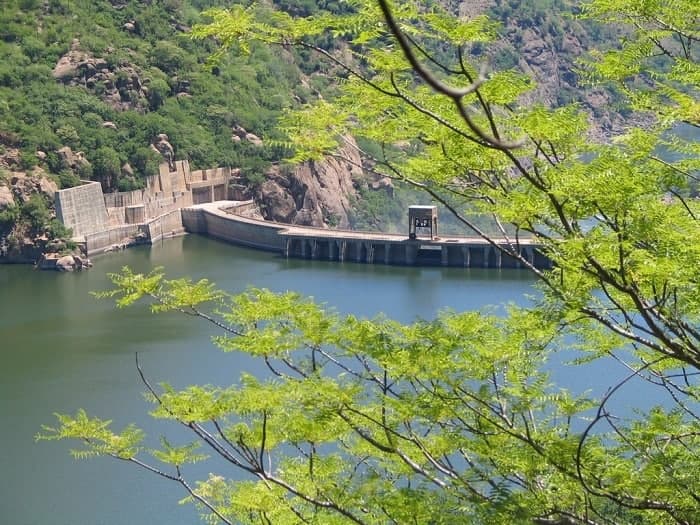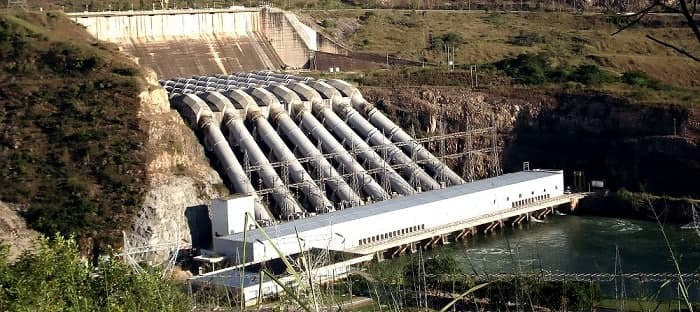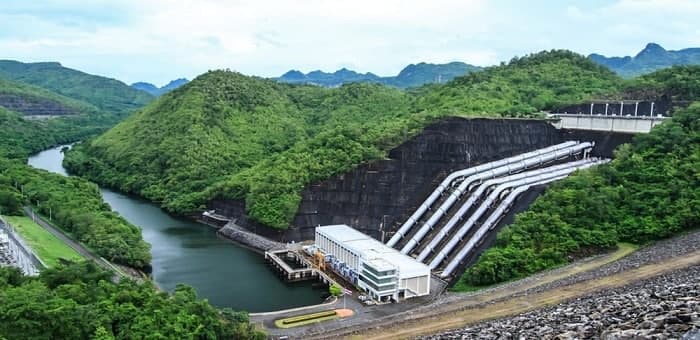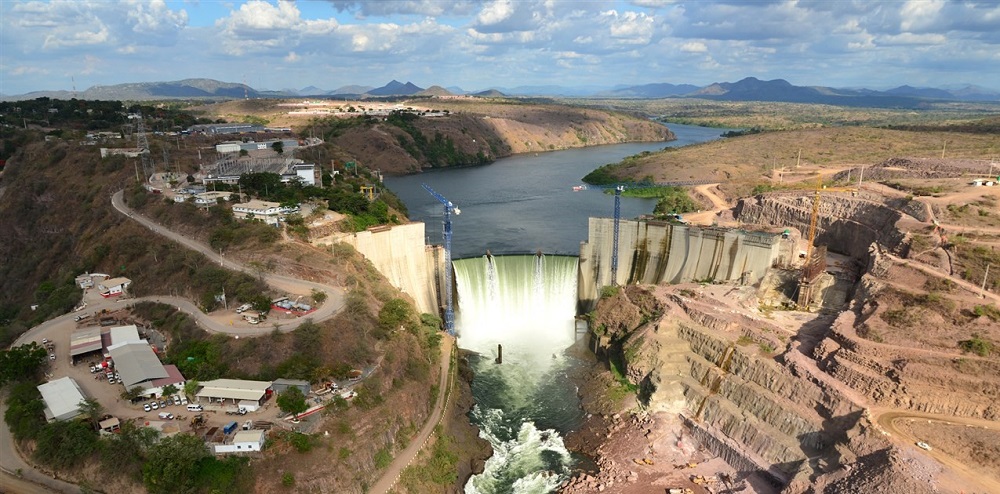Advantages and Disadvantages of Hydroelectric Energy – Hydropower is one of the most important, cheapest, and widely used renewable sources of energy. Hydropower has been in use since the earliest human civilizations, and it represents about 16.6 percent of total electricity production. Hydropower offers advantages over other energy sources, but it also causes environmental and social threats. Weighing the hydropower pros and cons is critical because we should know the impact our actions have when creating sustainable energy solutions.
In this article, with the ever-increasing demand for renewable energy to power the planet, Linquip will review the advantages and disadvantages of hydroelectric energy. Read to find out more.

Hydroelectric Power: Advantages
Hydropower has plenty of advantages and can be regarded as a promising technology in the transition process from fossil to renewable energy. Let’s look at the benefits that come with harnessing the incredible power of moving water.
Renewable and Sustainable
Hydroelectricity uses the energy of running water, without reducing its quantity, to produce electricity. It will still be a sustainable power source if the infrastructure around this kind of power will be sophisticated enough to meet the challenges related to global warming.
A Green and Clean Energy Source
The energy produced by hydroelectric plants does not create any toxic or greenhouse gases that pollute the atmosphere. Hydroelectric plants emit fewer greenhouse gasses than fossil-based power sources, which helps mitigate climate change, acid rain, and smog. Hydroelectric power also improves the air quality we breathe because they don’t emit air pollutants.
Fundamental Vehicle for Sustainable Development
Hydroelectric enterprises that are developed and operated in a manner that is economically viable, environmentally sensible, and socially responsible represent the best concept of sustainable development. It supplies cause for highway construction, attracts various industries, and gives an overall boost in commerce.
Domestic Power Source
In contrast to power production with fossil fuels, the production of hydropower does not require mining or the shipping of fuels over very long distances. There is no mining in the hydropower production involved, and the water will be converted into energy right where the power plant had been installed.
Promotes Guaranteed Energy and Price Stability
Despite expensive upfront building costs, hydroelectric power is a cost-competitive source of energy. River water is a domestic resource that, contrary to fuel or natural gas, is not subject to market fluctuations. In addition to this, it is the only large renewable source of electricity, and its cost-benefit ratio, efficiency, flexibility, and reliability assist in optimizing the use of thermal power plants.
Creates Job
Especially in regions where there is a high level of unemployment, the construction of hydropower plants may be a chance to create jobs and improve the overall living conditions of the local population. As a result, the average income of the local population increases, which in turn increases consumption levels and tax revenue.
Contributes to the Development of Remote Communities
Hydroelectric power plants supply electricity to remote communities and attract the construction of highways, industry, and commerce. All these activities serve to uplift the economy of these remote areas, increase access to education and healthcare, and enhance the overall life quality of residents.
Recreational Opportunities
The lake that forms behind the dam can be used for recreational opportunities, offering activities such as fishing, boating, and swimming. The lake’s water can also find used for irrigation purposes. Apart from this, large dams become a hotspot for tourist attractions. It can give nearby towns a boost economically.

Hydroelectric Power: Disadvantages
The flip side to all these advantages of hydroelectric energy is the disadvantages of hydroelectric energy. It is not perfect, however, and the negative effect of hydroelectric power is on the environment and local ecology. Here are a few main disadvantages of hydroelectric power.
Environmental Impact
Interruptions of natural water flow can have an immense impact on the environment and the river ecosystem. Hydropower facilities can affect land use, riverine valley forests, marshlands, and grasslands in the dam area. Reservoirs may cover people’s homes, important natural areas, agricultural land, and archaeological sites.
Areas that previously have been covered by water may dry up, and those that have been dry may water cover them. In turn, many animals and plant species may be confused due to these changes in natural living conditions, which may lead to a decrease in those species and may also lead to an imbalance in local ecosystems.
High Construction Costs
Hydroelectric power plants and dams can be incredibly expensive to construct. Moreover, the projects take long periods to finish and will have to operate for a long time too to recover the money spent on construction. Compared to the falling prices of solar installations, for example, hydropower is a more challenging renewable project to finance.
Limited Reservoirs
Although water is an unlimited resource, the conditions necessary to build a dam are limited. For the efficient production of hydroelectricity, there is a need for large rivers or streams to provide enough water. It is challenging to find a suitable spot that has a large year-round water supply, with the right amount of water, and is close enough to existing power lines.
Drought Potential
When weighing the advantages and disadvantages of hydroelectric energy, it’s necessary to consider the fact that water can and does go through cycles of abundance and drought. One of the main downsides of setting up hydroelectric power plants is the occurrence of local drought.
Border Conflicts
Rivers often represent the border between the two countries. When it comes to decisions regarding the construction of hydropower plants, both countries have to agree that this construction is in line with the goals of both countries.
If one country wants to build a hydropower plant and the other country does not, there may be serious conflicts between those countries that may even result in wars in the worst case.
Relocation Due to Risk of Floods
Local populations living downstream can become vulnerable to flooding due to the possible strong water currents that might flow from the dams. As a result, people have to relocate to facilitate the construction of the dam needed to generate hydroelectricity. The World Commission on Dams estimated in 2000 that dams had physically displaced 40-80 million people worldwide.
Degradation of Water Quality
The final disadvantage of hydroelectric energy on our list is water quality. When dams are created, they limit the flow of water, which affects the oxygen levels in the water. Lower oxygen levels behind the dam can result in lower oxygen levels downstream as well. When there is not as much oxygen in the water, it is more difficult for some species of fish to survive, which affects river habitats.

FAQs about Advantages and Disadvantages of Hydroelectric Energy։ a Useful Guide
Is hydropower expensive?
Hydropower also offers comparatively cheap expenses throughout a whole project’s lifetime in terms of upkeep, operations, and fuel compared to other energy sources. Like any major energy source, hydropower has considerable upfront expenses that cannot be avoided, but because of its extended lifespan, these costs are disbursed over time.
Why is hydropower not efficient?
The fact that hydropower is expensive to install, uses a lot of fuel, and can only be used in locations close to waterways are a few of the reasons it hasn’t captured more of the U.S. energy market. Sadly, the amount of water that is accessible also affects how much hydropower can be produced.
Does hydropower have negative effects?
Environmental and societal issues can also be brought on by hydropower. Rivers and the surrounding terrain are significantly altered by reservoir construction. Dams and reservoirs have the potential to decrease river flows, increase water temperature, deteriorating water quality, and accumulate silt. Fish, birds, and other species suffer as a result of this.
Does hydro Electric produce harmful waste?
Compared to other significant sources of electrical power that rely on fossil fuels, hydropower is more environmentally friendly. Hydropower plants, on the other hand, don’t give off the waste heat and gases that fossil fuel-powered facilities do, which are major causes of acid rain, global warming, and air pollution.
How long can hydropower be stored?
Hydropower employs the force of water that can be pushed uphill and the turbine downhill as much as necessary. It is renewable and sustainable. Pumped hydro storage facilities can last up to 100 years for the dam and more than 40 years for the electromechanical components.
Download Advantages and Disadvantages of Hydroelectric Energy PDF
You can download this article as a PDF so that you can access it whenever you like.
linquip. com-Advantages and Disadvantages of Hydroelectric Energy a Useful Guide
Watch Videos about the Advantages and Disadvantages of Hydroelectric Energy
For more information about the Advantages and Disadvantages of Hydroelectric Energy, watch this video about the Advantages and Disadvantages of Hydroelectric Energy.
So, there you have a detailed description of the advantages and disadvantages of hydroelectric energy. If you enjoyed this article in Linquip, let us know by leaving a reply in the comment section. Is there any question we can help you through? Feel free to sign up on our website to get the most professional advice from our experts.
Buy Equipment or Ask for a Service
By using Linquip RFQ Service, you can expect to receive quotations from various suppliers across multiple industries and regions.
Click Here to Request a Quotation From Suppliers and Service Providers
Read More On Linquip




Not sure if it fits on “Environmental impact” or “Border Conflicts”, but hydroplants may also interfere with native human life. In Brazil, the construction of hydro plants may interfere with native tribes in the Amazon. I know it’s a very specific problem, but I believe it’s important to notice;
You’re right, there could also be other issues for some specific areas such as interference with the life of local community, but that is too specific as you’ve mentioned.